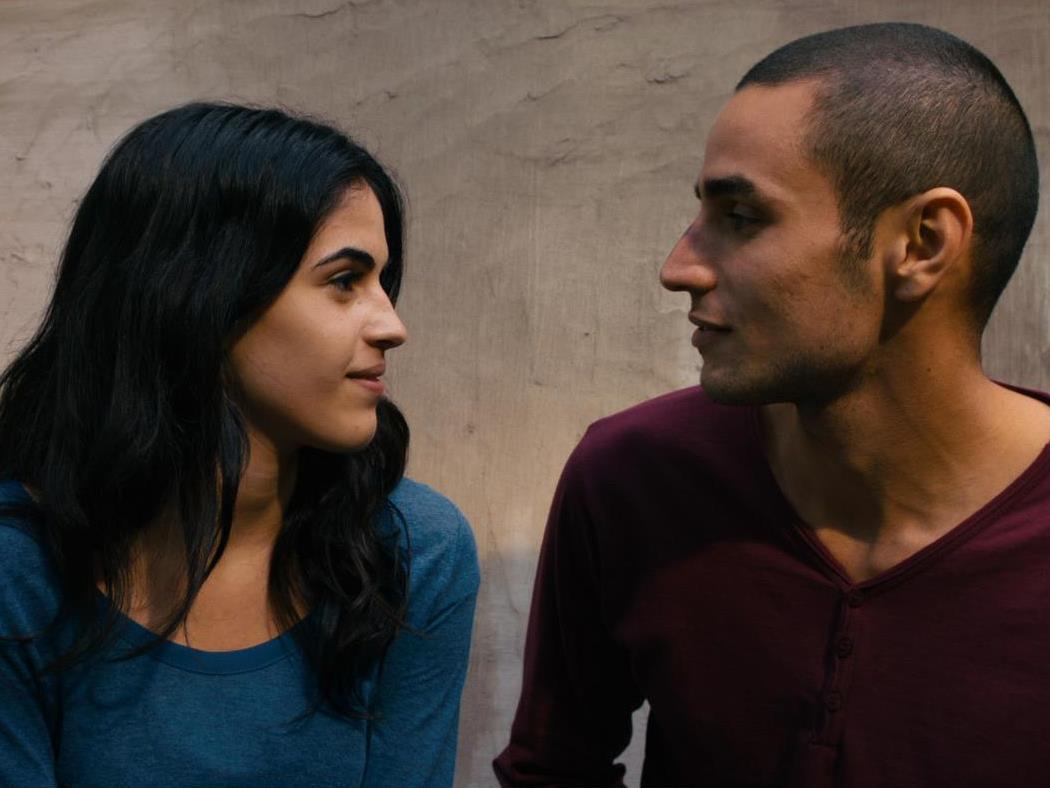On one side of the West Bank barrier, Palestinian baker Omar (Adam Bakri) ekes out a modest living; on the other side, he pursues violence, perpetuates romance, and becomes a pawn in a police operation. After banding together with pals Tarek (Eyad Hourani) and Amjad (Samer Bisharat) against the struggles that colour every day of his life, the fragile balance of his duality is shattered. Caught and incarcerated, he is coaxed into a confession that leaves him an informer at Israeli Agent Rami’s (Waleed F. Zuaiter, TV’s Revolution) mercy.
In the film that bears his name, Omar barters his loyalty for his freedom with ease – and with little intention of betraying his anti-Occupation cause. Of course, his naïve notions of subterfuge prove more complicated when put to the test on the outside and under constant surveillance. A secret affair with Tarek’s high-school aged sister Nadja (Leem Lubany) only adds to his woes, as does Amjad’s competing affections. The clashing desires to honour his friends, escape the long arm of the law and enjoy his fledgling relationship are more than he can juggle in the face of such peril.
Returning to the politics-infused drama of 2005’s Paradise Now, after an excursion into generic American action territory with 2012’s The Courier, writer/director Hany Abu-Assad finds his tension in a similar contrast. Omar is marked by its contemplation of the realities of the surrounding conflict, and punctuated by frays and chases that place his double dealing in an urgent context. With both elements bordering on conventional in isolation, the intrigue of the film – and the emotional investment – stems from the use of the thoughtful and the thrilling in tandem.
Teeming with the inescapable tragedy of ill-thought-out decisions, Omar canvasses universal themes in its moral quandary, but always remains trained on its lead. What lingers in the 2013 Oscar nominee for best foreign-language film is the sorrow of a protagonist trapped by matters beyond his control, as calmly and cleanly compiled into a gritty and galvanising package. The broader ramifications never fade from thought; however the individual focus retains strength. In the story, it is Omar’s actions the audience is aligned with, difficult, damaging and devastating as they are. In the careful framing of cinematographer Ehab Assal’s (Stories on Human Rights) imagery, Omar’s is the most prominent form, frequently placed in close-up to augment the feeling of familiarity.
Asking an untrained cast to portray the confused but falsely confident characters also aids in reinforcing the narrow focus, their performances touched by the sympathy and sensitivity of the understated. The experienced Zuaiter is expectedly assured and assertive in their midst as the narrative’s aggressor, as he should be as the veteran encircled by debutants. Again, the off-screen circumstances enhance the in-film world. Again, Omar – always the feature, never the eponymous figure – benefits from fortuitous synchronicity.
Rating: 3 ½ out of 5 stars
Omar
Director: Hany Abu-Assad
Occupied Palestinian Territory, 2013, 96 mins
Perth Festival
www.perthfestival.com.au
24 – 30 March
Film season runs through til 13 April
In general release: 5 June
Distributor: Madman
Rating: M





